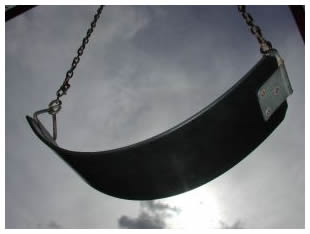 Children can suffer from depression just as adults can. But while mental health groups around the country struggle to increase awareness of the widespread nature of depression in adults, the equivalent illness in children is often very much swept under the carpet.
Children can suffer from depression just as adults can. But while mental health groups around the country struggle to increase awareness of the widespread nature of depression in adults, the equivalent illness in children is often very much swept under the carpet.
One of the reasons why this occurs is that adults have an entrenched perception that children are very resilient. While this is generally true, and children do seem to bounce back after a distressing episode much more quickly than the majority of adults do, there is a limit to a child’s personal coping skills.
Adults also seem to struggle with the idea that children have anything to be depressed about. We seem to look at children as being far more carefree than we are. After all, they are not bogged down by money worries, relationship issues, mortgages, serious illnesses, threatened job losses, and all the concerns that typically accompany the adult years.
Yet children have stresses that are just as difficult for them to negotiate as we adults do. Their issues may not seem as all-encompassing to us, but that it irrelevant. Their issues are important to them, and that’s what counts. They are also hamstrung by the lack of experience that adults acquire with age, including the realization that most problems that we worry about never happen. In fact, many an adult suffers from this problem, so it is small wonder that a child may seem overwhelmed by their own issues. Children also lack skills such as conflict resolutions skills and general knowledge skills that assist most adults to deal with their problems.
Far from being a carefree stage of life, childhood sometimes comes with its own set of problems:
• Peer pressure
Although experienced by adults, it is during childhood that this particular stress is at its most acute.
• Chronic illness of a parent of sibling
Children are very susceptible to the state of health of other family members, particularly a parent. Constant worry over the health of a parent, or being inadvertently pushed into the background due to a sibling’s chronic ill health may precipitate depression in a child.
• Experience of sexual abuse
It goes with out saying that this is one of the most traumatic experiences for a child to experience and when the situation is undiscovered or remains unresolved, depression may result.
• Chronic childhood illness
Where a child suffers from a serious, chronic illness which interferes with normal day-to-day activities for a long period of time there exists the potential for depression to occur. Older children especially are at risk since they are more aware of the activities of their peer group and hence those experiences that they are missing out on.
• Loss of a parent due to death or divorce.
• Exposure to toxic family relationships, such as constant arguing; physical,
emotional, and verbal abuse of a parent or sibling.
• Exposure to irresponsible parental behaviors such as binge drinking and drug taking.
• Chronic neglect by one or both parents
• Suicide of a parent
This list is by no menas exhaustive, and causes of childhood depression are limited only by the variety of circumstances a child finds him or herself in.
In related blogs below, you can find symptoms of childhood depression and treatment options.
Contact Beth McHugh for further assistance with this issue.
Related articles:
Depression: Symptoms and Treatment (1)
Depression: Symptoms and Treatment (2)
What is the best treatment for depression?
Feeling bad about taking antidepressants?
When antidepressants aren’t the best option (1)
When antidepressants aren’t the best option (3)
When antidepressants aren’t the best option (2)
Chocolate may make your depression worse!
Depression, antidepressants and sex
Depression: The myth of “Chemical Imbalance”
Depression in babies and young infants
Depression in children and adolescents
Low birth-weight babies and adult depression
Antidepressants are anti-loneliness pills

